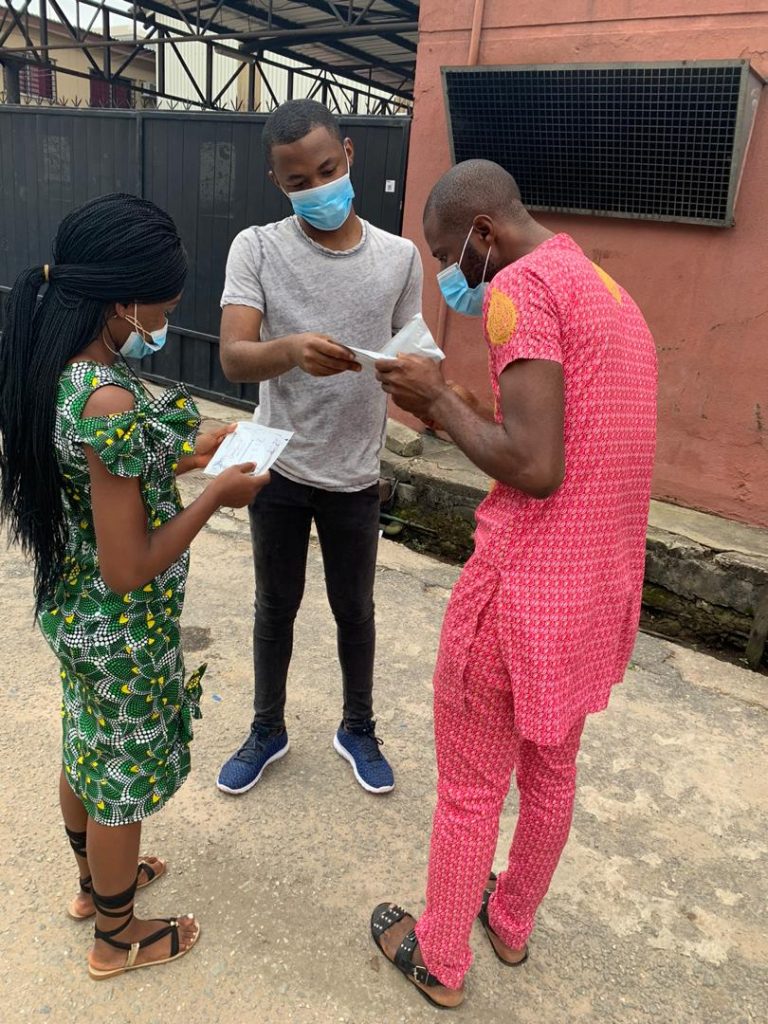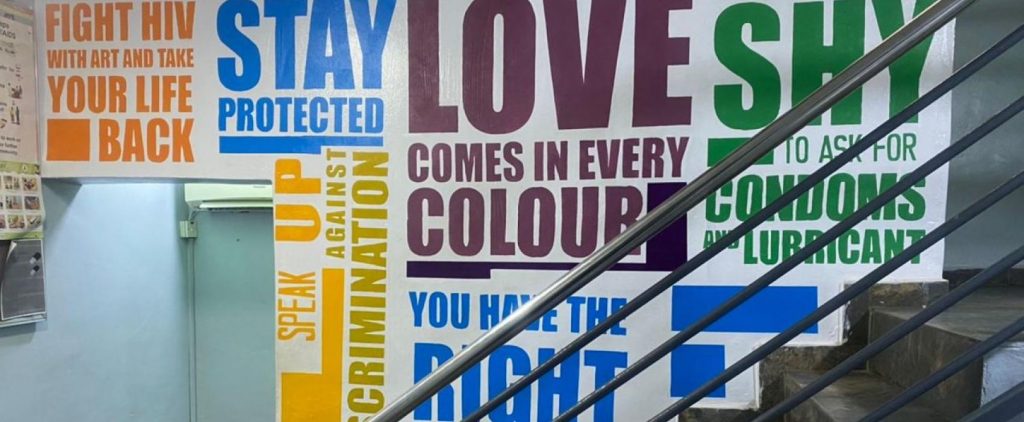The Centre for Population Health Initiatives (CPHI) in Lagos, Nigeria, is a drop-in community health center that offers a wide range of specialized, free health services to key populations. This PEPFAR-funded One-Stop Shop is a community-led resource where vulnerable populations and people living with HIV can access screening, testing and treatment, TB screening and treatment, cervical cancer screening, prevention of mother-to-child transition, partner counseling, and more in one safe, convenient location.
In addition to HIV prevention and treatment services, this One-Stop Shop is a hub for trusted information and access to COVID-19 vaccines.
As of May 8, only 14.4% of eligible Nigerians were fully vaccinated against COVID-19 (Nigeria Centre for Disease Control). According to the SAGE Working Group on Vaccine Hesitancy, vaccine refusal and hesitancy are usually related to the 3 C’s: Confidence, Complacency, and Convenience (Kayode et al., 2021). NOI polls taken in April 2022 showed that in Ebonyi state, Nigeria, key reasons individuals gave for not getting the vaccine include fear of the side effects, uncertainty that the vax will work, and logistical challenges such as not knowing where to go, distance to vax site and difficulty in scheduling. The One-Stop Shop model can help address these factors.
To build confidence, patients must have trust in healthcare professionals, vaccines, and their effectiveness. Members of key populations; including men who have sex with men, people who inject drugs, people who engage in transactional sex and transgender people; face stigma in traditional healthcare settings. CPHI has built a reputation for employing nonjudgmental staff and clinicians, and clients build trusting relationships with staff over repeat visits. The ability to have open discussions and ask questions builds client confidence in the center and the COVID-19 vaccine information they receive.
“Clients have trust because they see the same people and faces,” said Dooshima Uganden, Prevention Program Manager for HJFMRI and the Walter Reed Program-Nigeria, which supports CPHI. “Staff spend time explaining what the vaccine does, how it works, what the benefits are ̶̶ and clients are free to ask questions and know if there are issues they can come back.”
The opportunity to have conversations with trusted providers is especially valuable to counter COVID-19 vaccine misinformation spread through social media. “I was actually scared of the news online, [rumors of] becoming magnetic and having headaches, but I felt absolutely nothing after taking both the first and second dose,” said a client who was vaccinated at the CPHI.
This open, conversational access to clinicians and center staff can also help fight vaccine complacency – low awareness of the risks of vaccine-preventable diseases and the importance of vaccines. Uganden cited the example of people living with HIV: at the center, they can learn that their immunocompromised status can put them at a higher risk of severe COVID-19 illness and learn how vaccines can effectively reduce that risk.
“I was scared at first thinking the vaccine will tamper with my system and make me fall sick easily. But when I took the first dose, I felt normal,” said one CPHI client.
Convenience is at the heart of the One-Stop Shop model. Clients who drop in for counseling or preventive services, or just to spend time in the CPHI center, may use the opportunity to discuss or receive the COVID vaccination. And, like all CPHI One-Stop Shop services, the COVID-19 vaccines are free. The One-Stop Shop is supported by the PEPFAR through the U.S. Military HIV Research Program at the Walter Reed Army Institute of Research.
CPHI has vaccinated more than 180 individuals since the integration of COVID-19 vaccines into its services.
“I was initially hesitant due to false information that I had received from social media. After proper counseling, I accepted to take the vaccine,” said a CPHI client. “My vaccination was a pleasant journey because all the clinic staff was nice and patient with me. I will recommend to others to get vaccinated as soon as possible.”
References:
Kayode OR, Babatunde OA, Adekunle O, Igbalajobi M, Abiodun AK (2021) COVID-19 Vaccine Hesitancy: Maximising the Extending Roles of Community Pharmacists in Nigeria in Driving Behavioural Changes in Public Health Interventions. J Infect Dis Epidemiol 7:205. doi.org/10.23937/2474-3658/1510205
NOI Polls: https://noi-polls.com/


